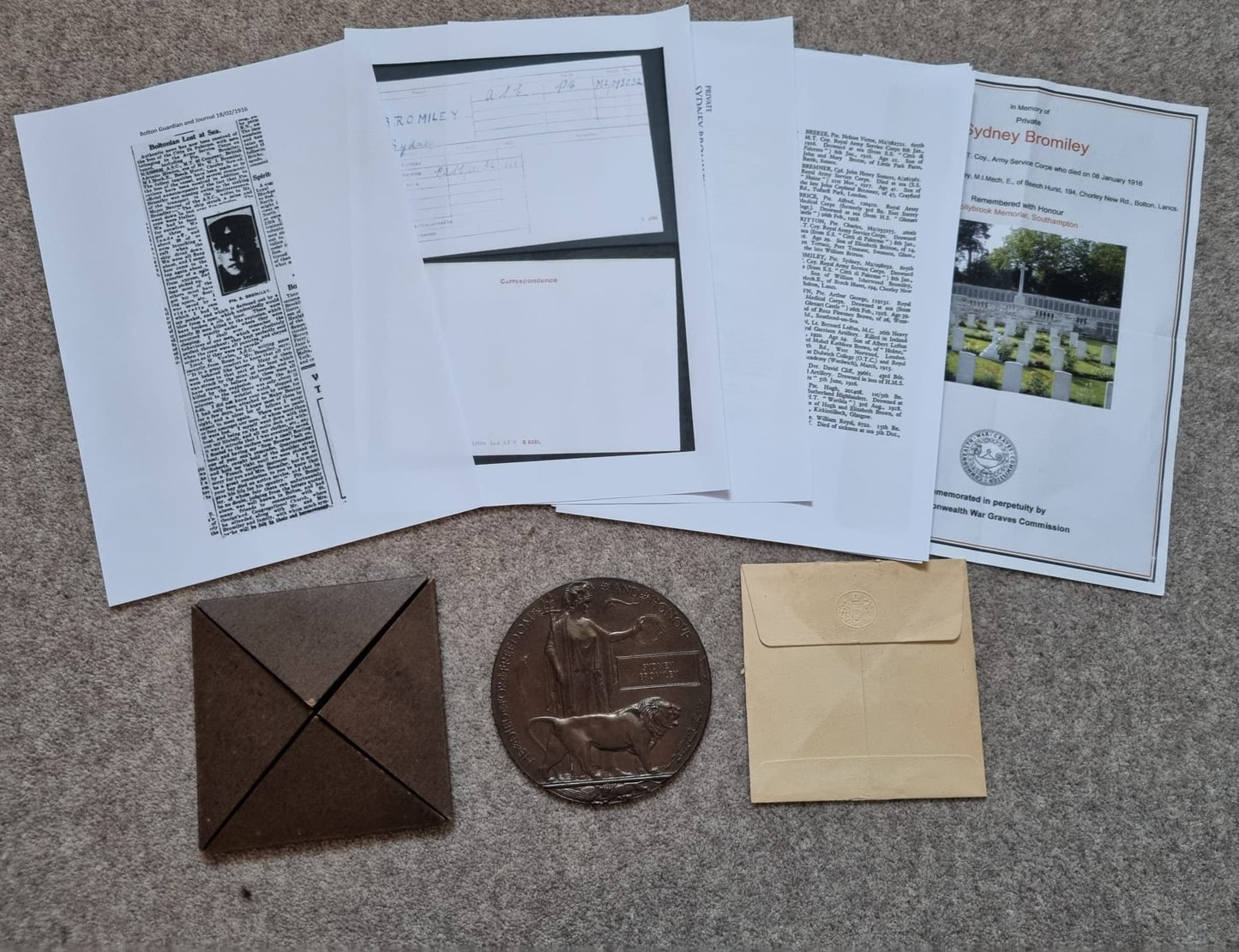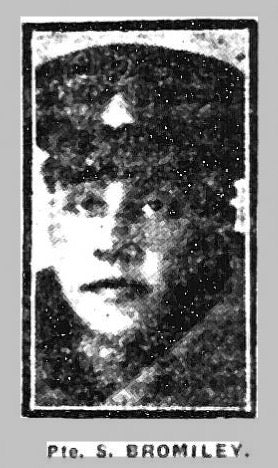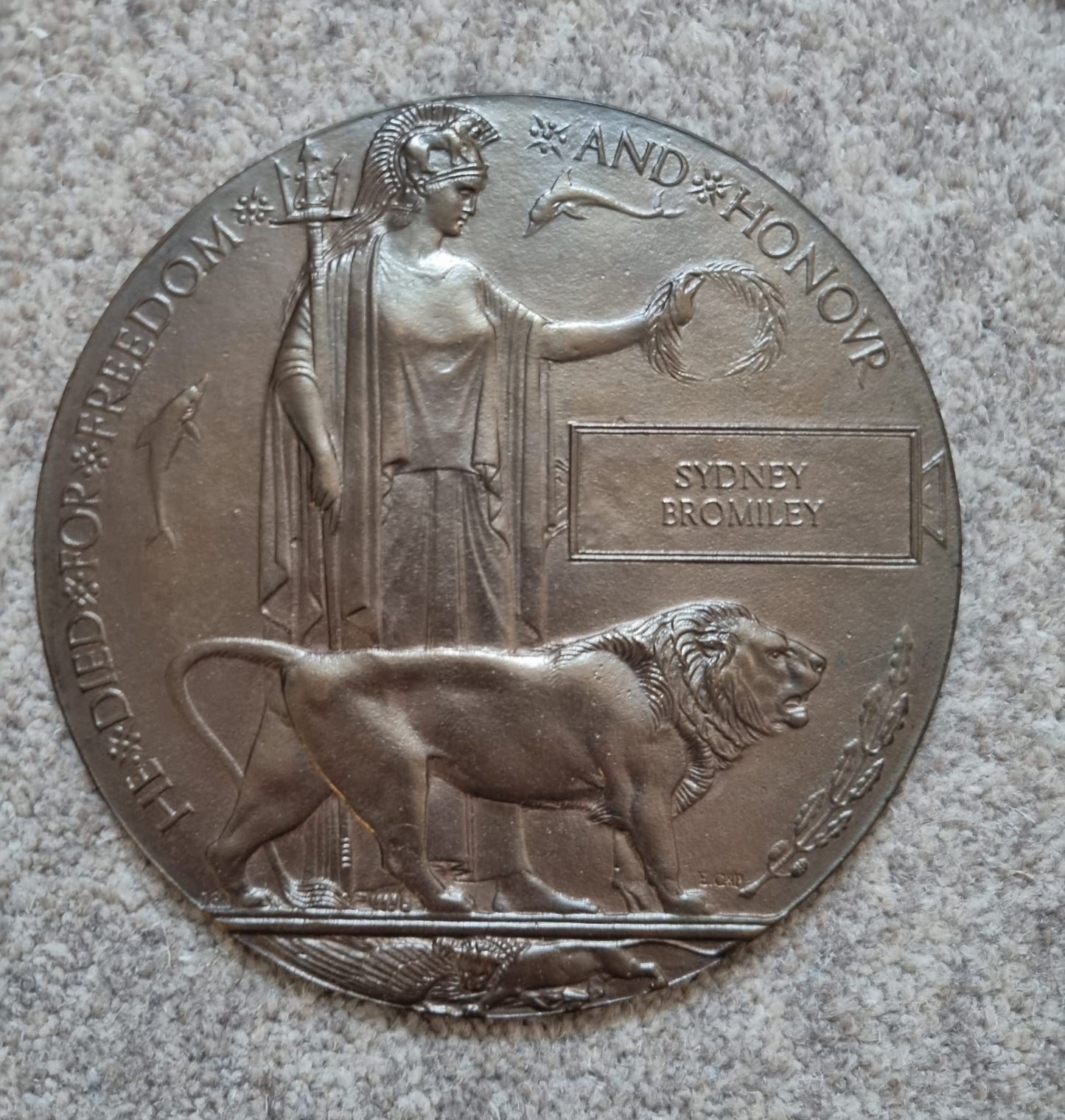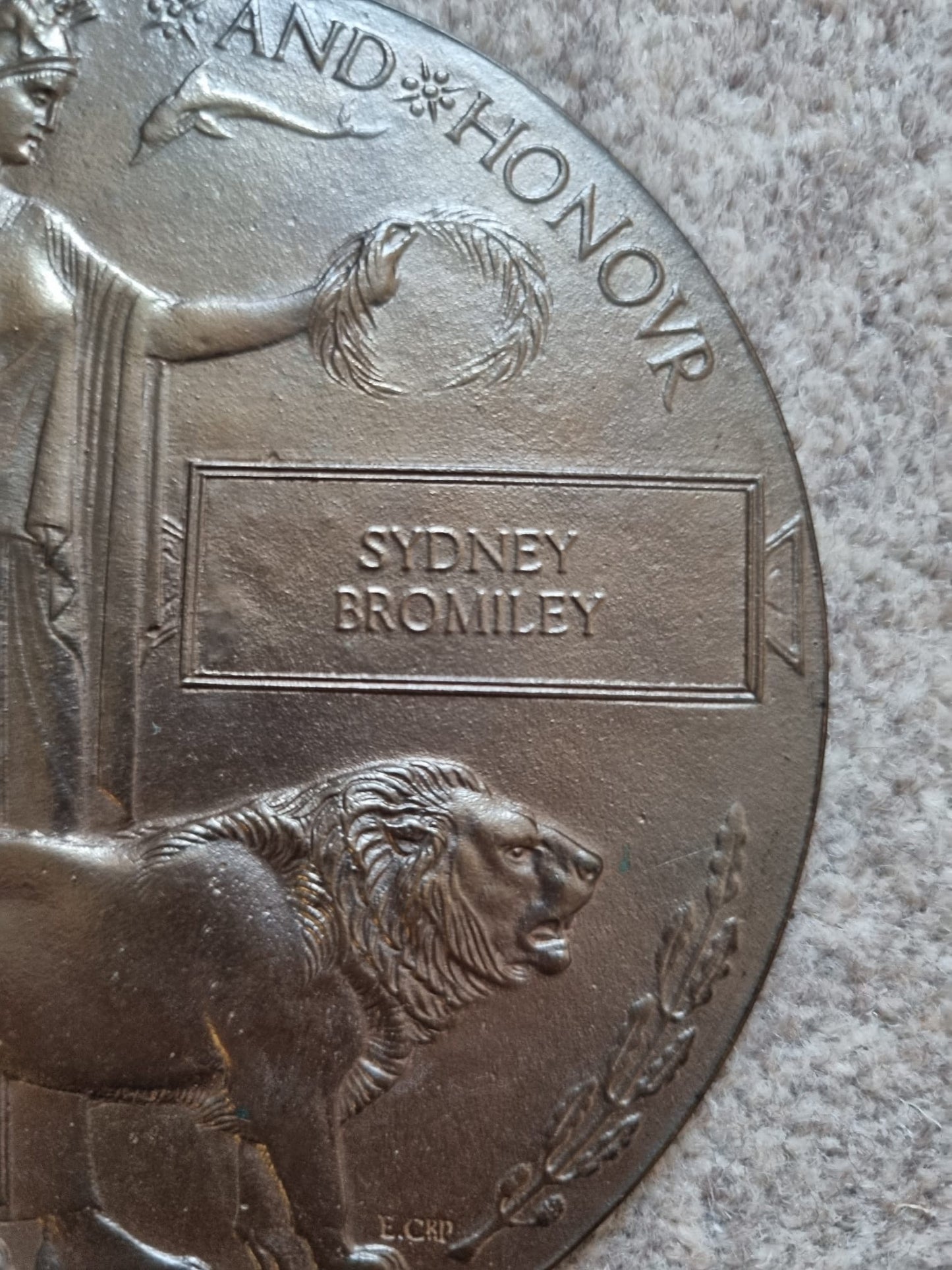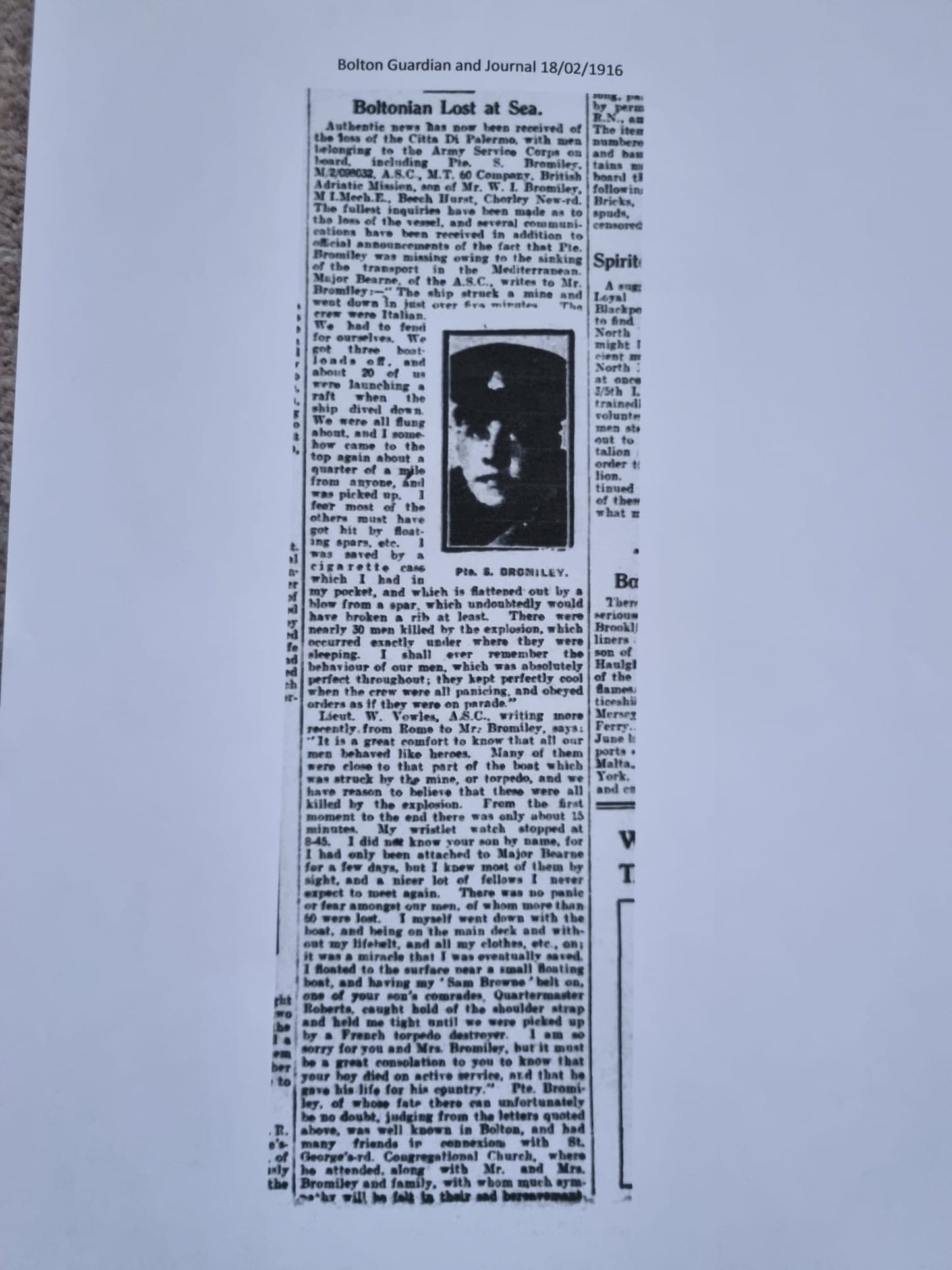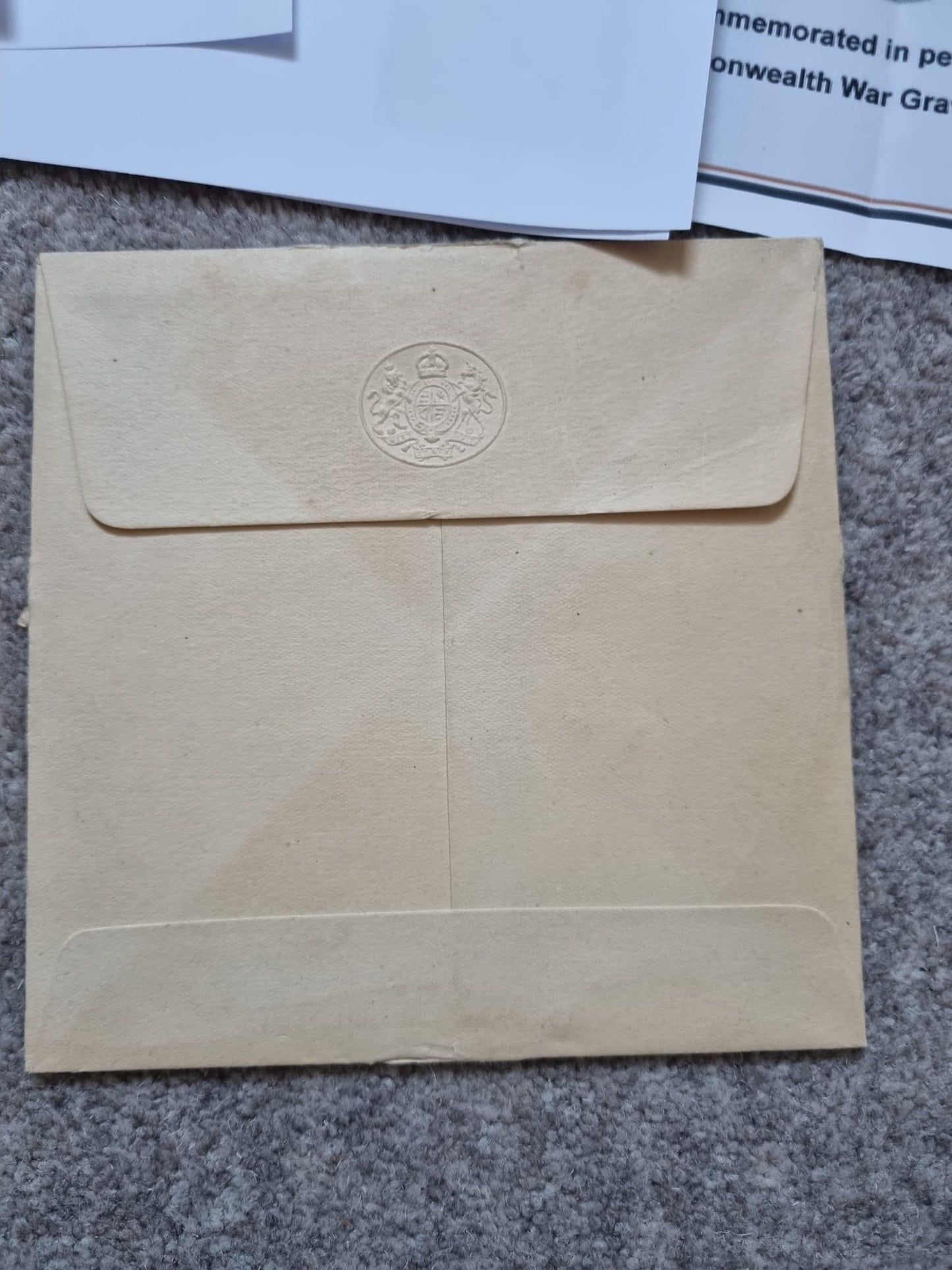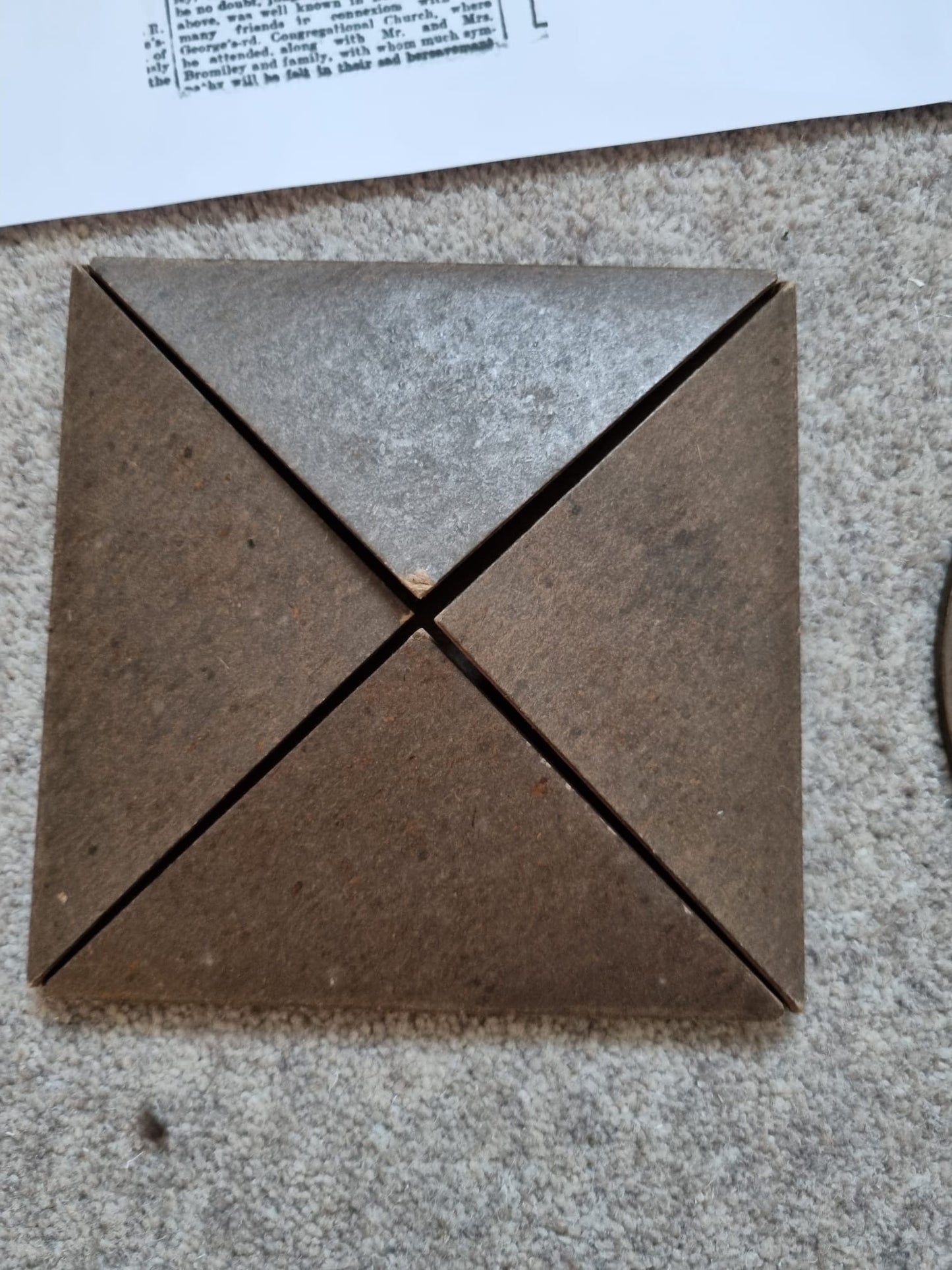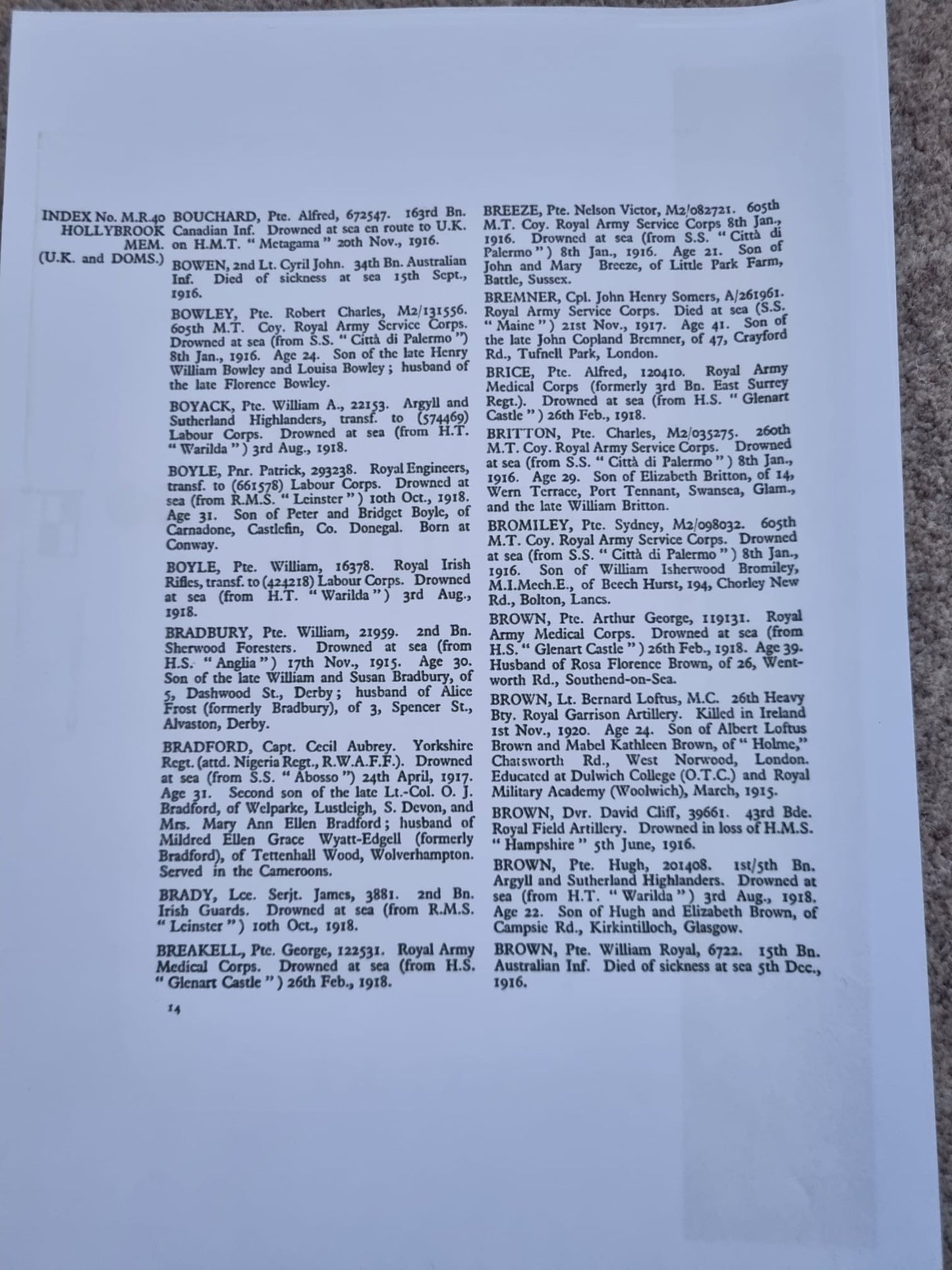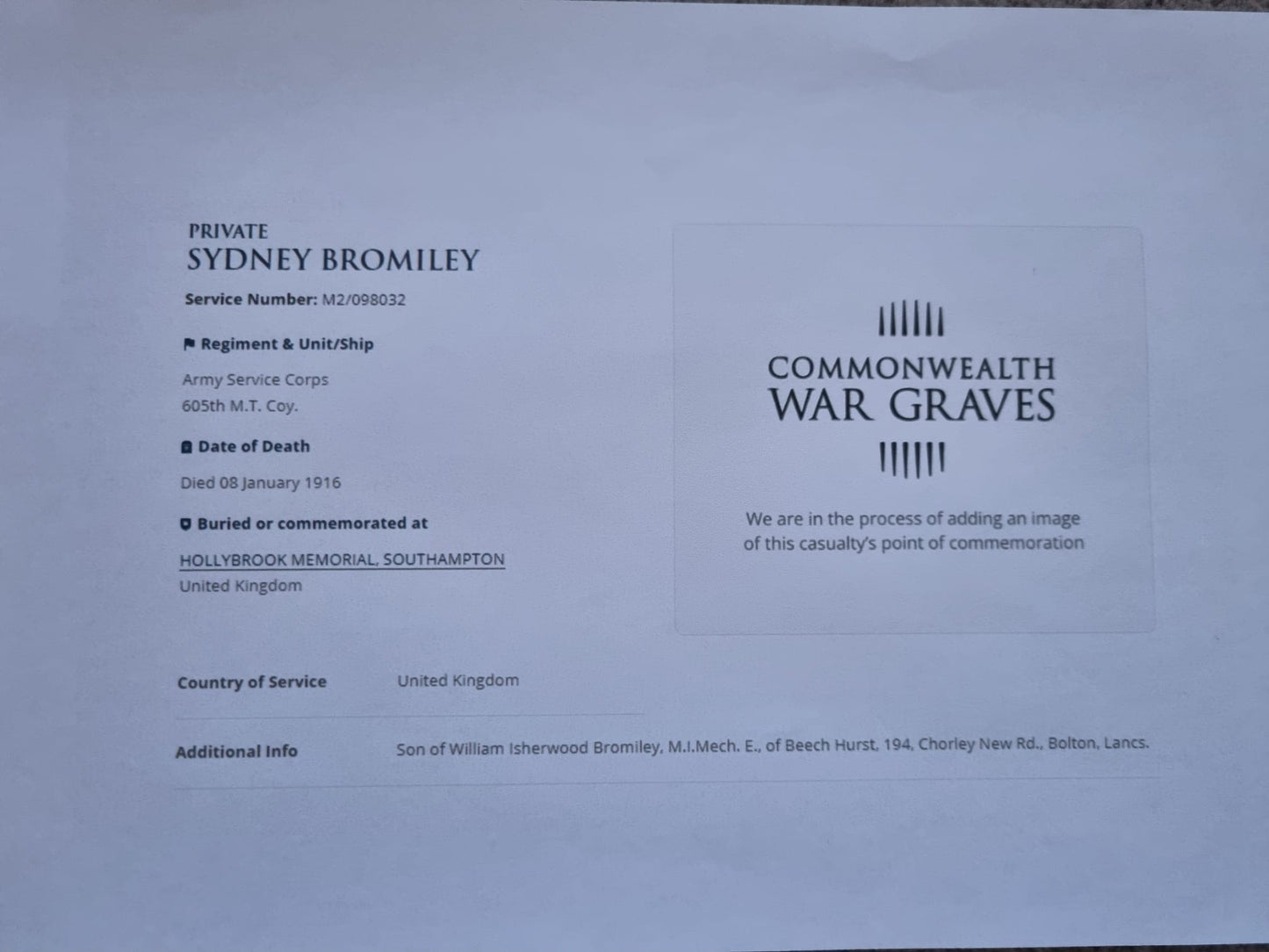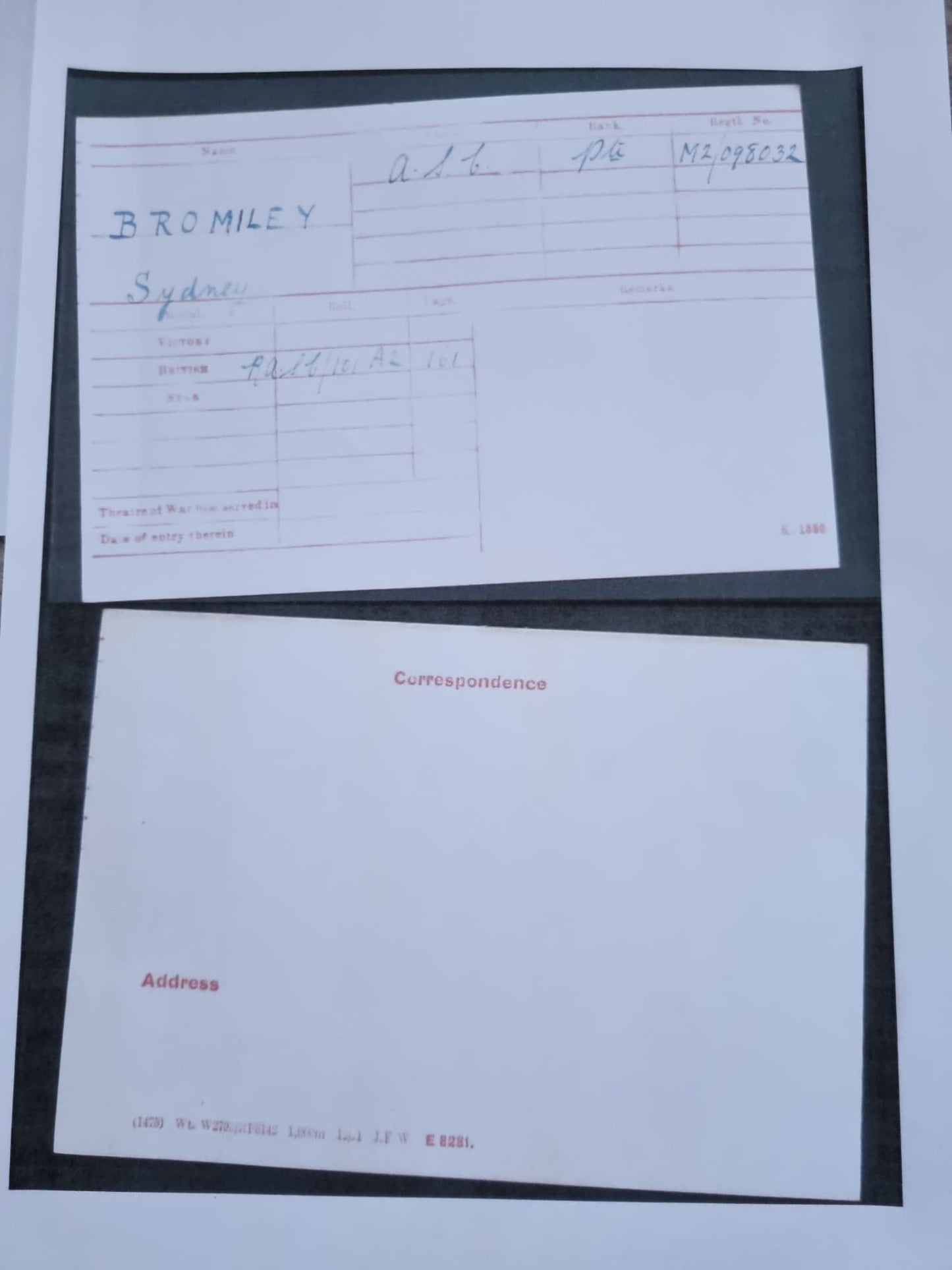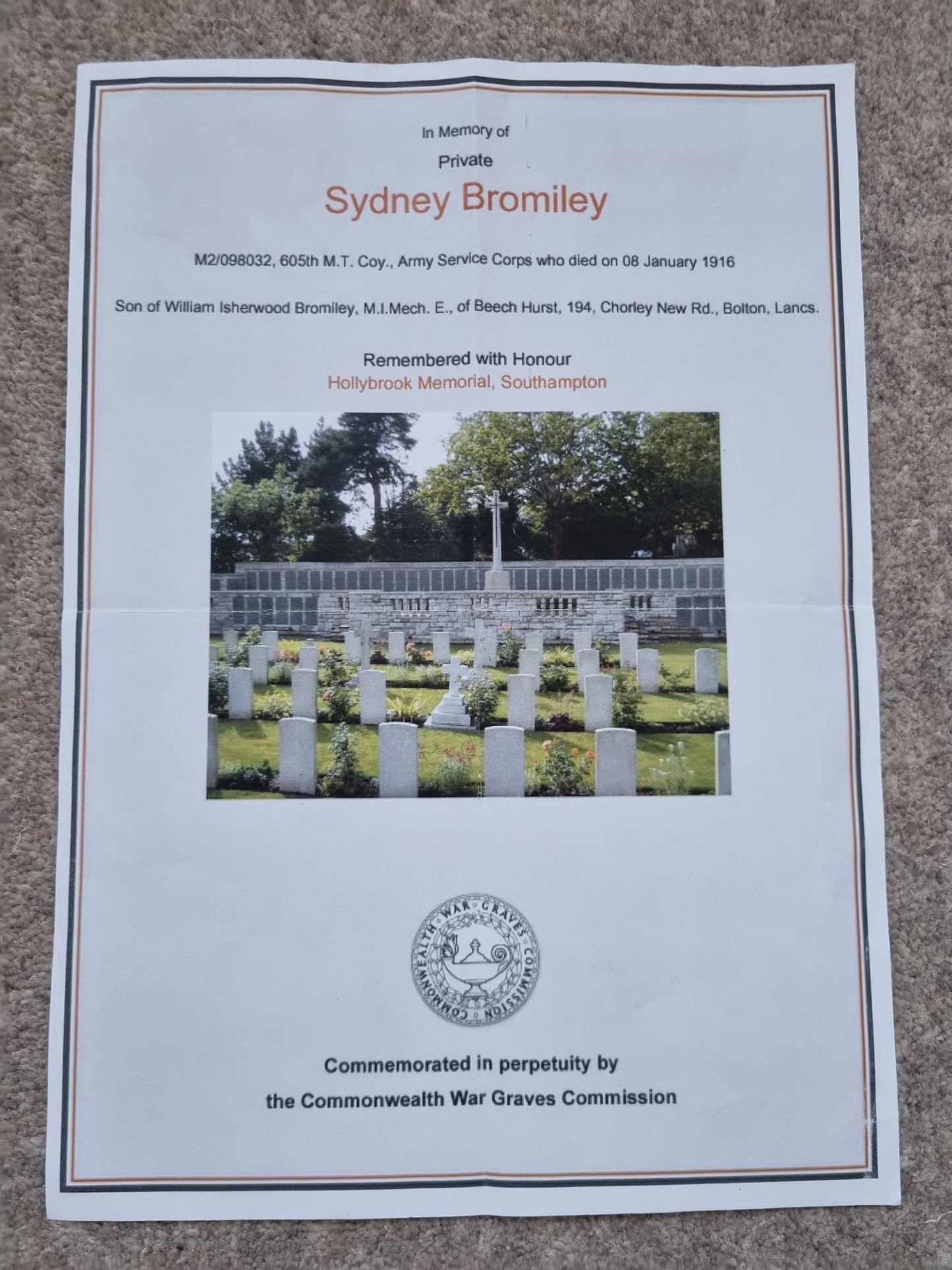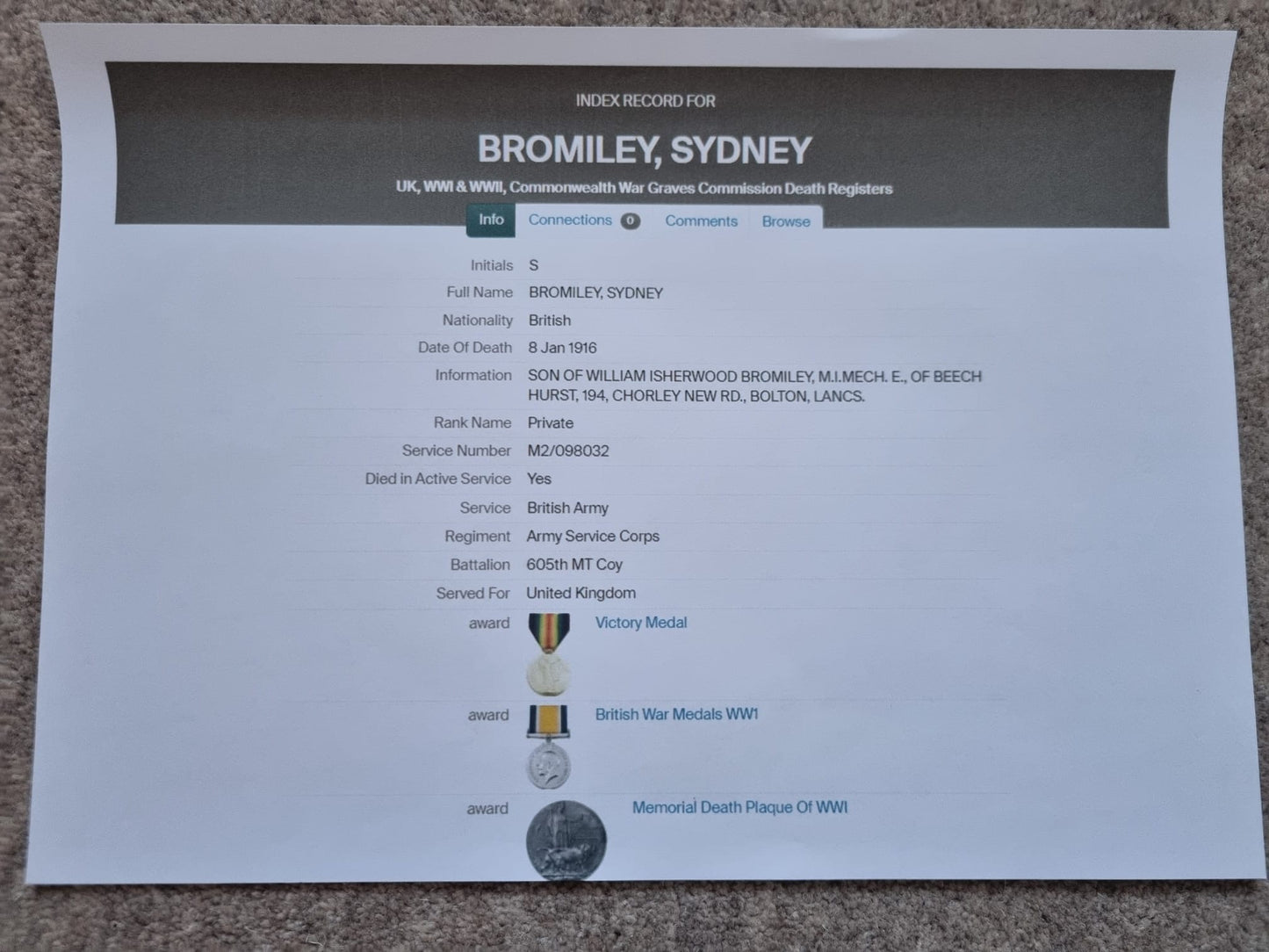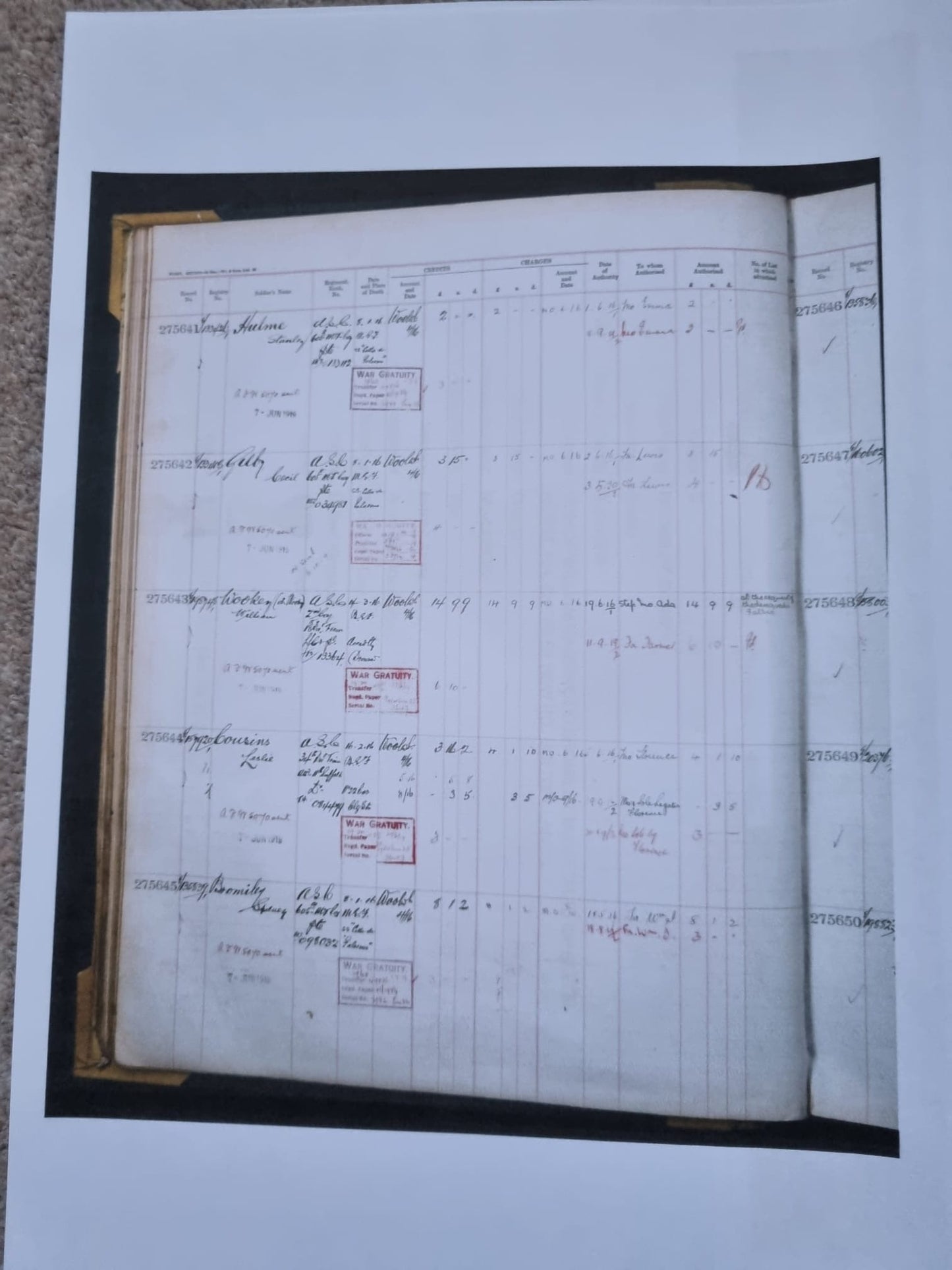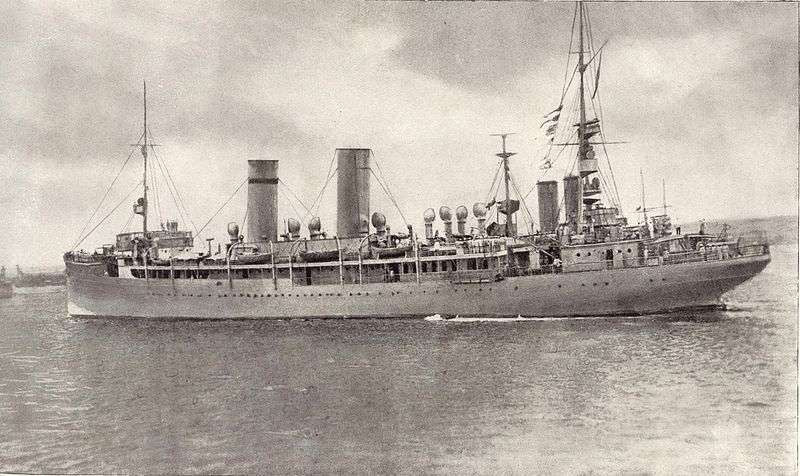SOLD! WW1 British Death Plaque to Private Sydney Bromiley- 605th Mechanised Transport Company, Army Service Corps
SOLD! WW1 British Death Plaque to Private Sydney Bromiley- 605th Mechanised Transport Company, Army Service Corps
Couldn't load pickup availability
A WW1 British Death Plaque to Private Sydney Bromiley 605th Mechanised Transport Company Army Service Corps, from Bolton.
Supplied with its original card packets and official envelope.
Private Sydney Bromiley (M2/098032), 605th Mechanical Transport Company, Army Service Corps
Born 1890 in Bolton, the son of William and Mary Bromiley.
He enlisted to the 605th Mechanical Transport Company, Army Service Corps with service number M2/098032. It is unclear when he enlisted, but it was likely when the Company was forming up in November 1915, before departing for Bulgaria as part of the British Adriatic Mission.
The Company eventually departed for Durazzo, then Salonika and the Bulgarian front, via Italy, aboard the Italian Ship, SS Citta de Palermo. They left Brindisi on the morning of January 8th, 1916. However what they did not know was that weeks before, on 10 December 1915, mines had been laid outside the harbour by a small German minelaying submarine, UC14. The ship departed at 8:30 am but only six miles North East of Brindisi they hit the mine field, striking a mine and sinking entirely by 8:45. Of the 200 men on the SS Citta de Palermo, around half were saved, but sadly, Sydney was not one of them, being listed as killed as a result of active service on 8th January 1916, at the age of 26.
Major Bearne of the A.S.C wrote to Syndey’s father “The ship struck a mine and went, down in just five minutes. The crew were Italian, we had to fend for ourselves. We got three…(unreadable)…and about 20 of us were launching a raft when the ship dived down. We were all flung about and I somehow came to the top again about a quarter of a mile from anyone and was picked up. I fear most of the others must have got hit by floating spars, etc. I was saved by a cigarette case which I had in my pocket, and which is flattened by a blow from a spar, which undoubtedly would have broken a rib at least. There were nearly men killed by the explosion, which occurred exactly under where they were sleeping. I shall ever remember the behaviour of our men, which was absolutely perfect throughout; they kept perfectly cool when the crew were all panicking and obeyed orders is if they were on parade.”
Lieutenant W Vowles, A.S.C, also wrote to Sydney’s father, saying “It is a great comfort to know that all our men behaved like heroes. Many of them were close to that part of the boat which was struck by the mine, or torpedo, and we have reason to believe that these were all killed by the explosion. From the first moment to the end there was only about 15 minutes. My wristlet watch stopped at 8:45. I did not know your son by name for I had only been attached to Major Bearne for a few days, but I knew most of them by sight, and a nicer lot of fellows I never expect to meet again. There was no panic or fear amongst our men, of whom more than 60 were lost. I myself went down with the boat, and being on the main deck and without my lifebelt, and all my clothes on, it was a miracle that I was eventually saved. I floated to the surface near a small floating boat, and having my Sam Browne belt on one of my comrades, Quartermaster Roberts, caught hold of the shoulder strap and held me tight until we were picked up by a French torpedo destroyer. I am so sorry for you and Mrs Bromiley, but it must be a great consolation to you to know that your boy died in active service, and that he gave his life for his country”.
Sydney’s death was listed in the Bolton Guardian and Journal 18/02/1916, Bolton Evening News 16/02/1916 and Farnworth Chronicle 19/02/1916. He is remembered on the Hollybrook Memorial in Southampton, as well as in Bolton Grammer School and Bolton War Memorial
Share
